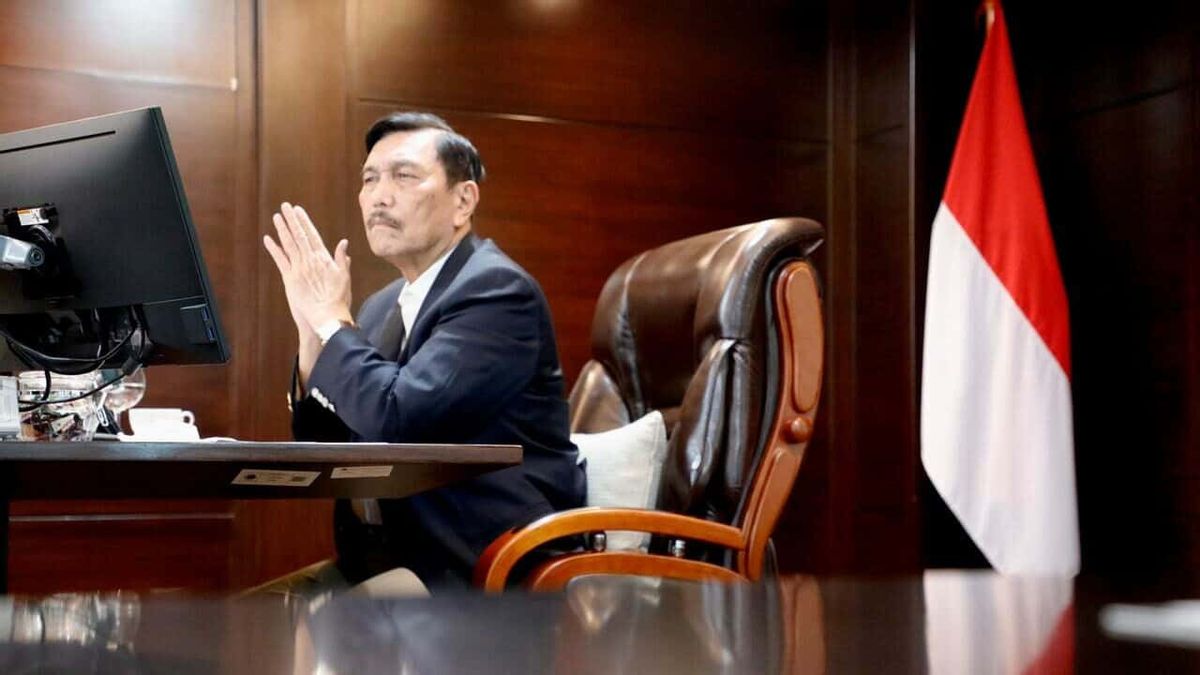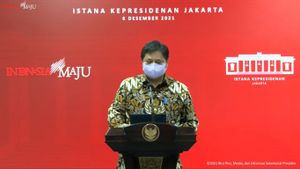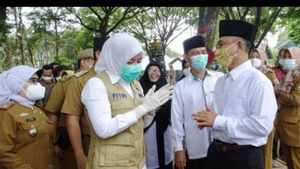JAKARTA - The handling of the COVID-19 pandemic in Indonesia has shown significant and controlled improvements at a low level. So far, Indonesia has managed to keep the daily number of confirmed cases of COVID-19 stable below 400 cases. Active cases and the number of hospitalized patients have shown a downward trend in the past few days.
Improvements in the handling of the COVID-19 pandemic can also be seen from the trend of changing the level of PPKM in city districts in Java and Bali. Based on the assessment as of December 4, the number of regencies/cities remaining at level 3 is only 9.4 percent of the total regencies/cities in Java-Bali or only 12 regencies/cities.
However, the Coordinating Minister for Maritime Affairs and Investment (Menko Marves) Luhut Binsar Pandjaitan stressed that all parties need to increase vigilance, especially considering the emergence of a new variant of Omicron which has been confirmed in several countries.
The spread of Omicron Variants in various countries around the world is indicated to be faster and increase the possibility of reinfection. However, preliminary findings from South Africa show that the severity and death rate from the Omicron variant is relatively under control, although it still takes time and additional data to obtain more valid information.
“Travel conditions will remain tightened, especially at the border for passengers from abroad. However, the PPKM policy during the Christmas and New Years period will be made more balanced with continued testing and tracing activities," said Coordinating Minister Luhut in his press statement, quoted from the website of the Coordinating Ministry for Maritime Affairs and Investment, Tuesday, December 7.
SEE ALSO:
He explained that Indonesia's borders will still be tightened with the condition that passengers from abroad are negative PCR test results a maximum of 2 × 24 hours before departure, and quarantine for 10 days in Indonesia.
Through strengthening 3T (testing, tracing, and treatment) and accelerating vaccination in the last 1 month, Indonesia is now more prepared to face Christmas and New Year's moments. Testing and tracing remain at a high level, although cases are low, and better than in the same period last year.
Responding to these developments, the Government decided to make a more balanced policy by not giving equal treatment in all areas ahead of Christmas and New Year's Eve.
The government decided not to apply PPKM level 3 in the Christmas and New Year period in all regions. The implementation of the PPKM level during Christmas and New Year will continue to follow the assessment of the pandemic situation as currently applicable, but with some tightening.
This decision is also based on the achievement of dose 1 vaccination in Java-Bali which has reached 76 percent and dose 2 which is close to 56 percent. Vaccination for the elderly continues to be boosted until it reaches 64 and 42 percent for doses 1 and 2 in Java and Bali. In comparison, no Indonesians were vaccinated during the Christmas and New Years period last year. The results of the sero-survey also show that Indonesians already have high levels of COVID-19 antibodies.
During Christmas and New Year, the requirement for domestic long-distance travel is mandatory complete vaccination and negative antigen results in a maximum of 1×24 hours before departure. For adults who have not been fully vaccinated or cannot be vaccinated for medical reasons, long-distance travel is not permitted. Children can travel, but on condition that PCR is valid for 3×24 hours for air travel or 1×24 hours for antigen for land or sea travel.
The government has also implemented a ban on all types of New Year celebrations in hotels, shopping centers, malls, tourist attractions, and other public crowded places. Meanwhile, the operation of shopping centers, restaurants, cinemas, and tourist attractions is only allowed with a maximum capacity of 75 percent and only for people with the green category in the Care Protect application.
"As for social and cultural events, the maximum number of people allowed is 50 people. The discipline of using Care to Protect must be enforced," concluded Coordinating Minister Luhut.
Details of the changes will be stated in the revised Minister of Home Affairs and circulars related to Christmas and other New Years.
Apart from that, the President gave directions to accelerate the implementation of children's vaccinations. This step is to provide protection for children, including considering the spread of the Omicron variant in South Africa which mostly affects children.
The various steps taken by the Government are based on the latest data and information developments regarding the COVID-19 Pandemic. Evaluation continues to be carried out regularly every week, so that policies can adapt quickly, adapting to the latest developments.
The English, Chinese, Japanese, Arabic, and French versions are automatically generated by the AI. So there may still be inaccuracies in translating, please always see Indonesian as our main language. (system supported by DigitalSiber.id)















